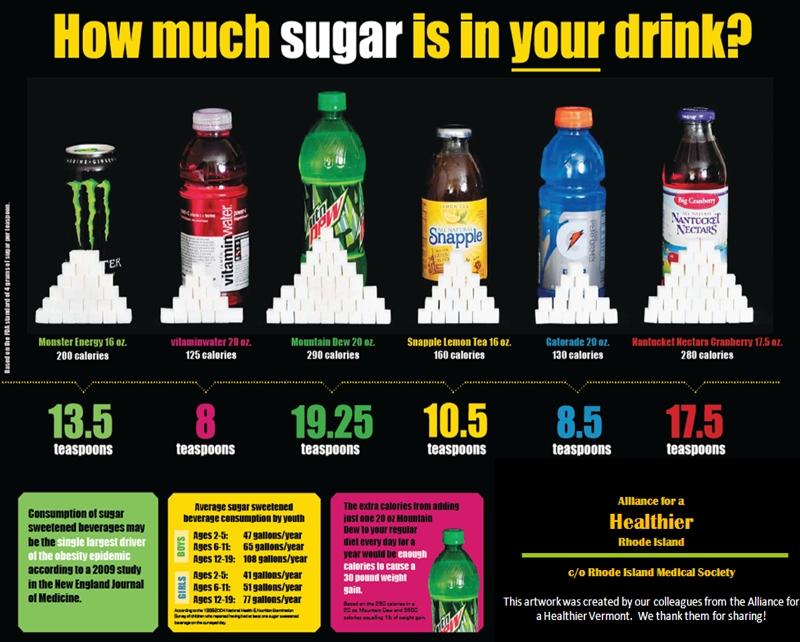
Apple juice or Cola? Quick: which one contains the same amount of sugar as four Krispy Kreme glazed donuts?
Whichever one you picked, you’re wrong. It’s a trick question. Apple juice and Cola both contain the same amount of sugar as four Krispy Kreme doughnuts.
According to Barry Popkin, who popularized the dangers of high fructose corn syrup in soft drinks in 2004, “fruit juice and smoothies are the new danger.” Because fruit juice is commonly marketed as “all natural,” consumers blindly drink large amounts of it without consideration of potential downsides to this “healthy” drink.
Popkin says, “All sugars are equal in their bad effects–even those labeled “completely natural.” What people don’t realize is that the cheapest thing globally on the market is fruit juice concentrate coming out of China.
Research conducted in the UK, USA, and Singapore show that those who eat whole fruit are less likely to get type two diabetes. In contrast, those who drink fruit juice are at increased risk. Those who replace drinking fruit juice with eating whole fruit decrease their risk by seven percent. This is because fibers present in whole fruit improve blood sugar control, while fruit juices lack this fiber, leaving you to digest only the sugar and causing blood sugar content to spike.
Despite all the evidence, companies such as Coca-Cola and PepsiCo, which own Innocent Smoothies and Tropicana, argue that drinking fruit juice is good for your health. Coca-Cola claims that drinking juice leads people to have better diets and lower rates of obesity than others. What they don’t mention is that the studies they cite tend to receive heavy funding from the juice industry itself.
So don’t drink endless amounts of fruit juice or smoothies thinking it will be of any benefit to your health. The only thing fruit juice has in common with whole fruit is its sugar content; it has none of the fiber that’s actually healthy for you.
Fruit juice: the new soft drink
December 31, 2013
0




![[PHOTO COURTESY OF PIXABAY]](https://blueandgoldonline.org/wp-content/uploads/2025/03/white-18227_1280-1200x803.jpg)

![[PHOTO COURTESY OF PIXABAY]](https://blueandgoldonline.org/wp-content/uploads/2025/03/fire-6706674_1280-1200x800.jpg)
